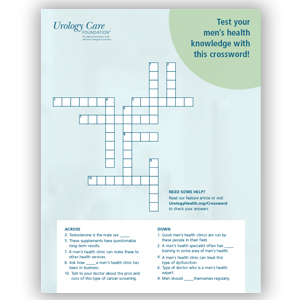| FEATURE |
Self-care:
Simple ways to focus on taking care of you

Self-care is the practice or practices that can help a person protect their own well-being and happiness, mainly during times of stress. But how can we focus on self-care when work, family, activities and health issues often leave us with too little “me” time?

“Self-care is just that, taking control of your own care. Make sure you get a doctor you trust."
Ruchika Talwar, MD
Ruchika Talwar, MD, a fellow urologist who specializes in urologic oncology, says self-care can mean different things to people. “It could mean physically moving more for some people, and for others it could be the opposite – slowing down, getting more sleep or spending quality time with loved ones. The key to self-care is listening to your body. Your body will let you know what it needs and when it needs it. It is your job to notice these things and respond.”
Healthy eating can be an overlooked form of self-care. Eating more fruits, vegetables and whole grains, while reducing added sugars and refined carbohydrates, gives the body and brain the nutrients and energy it needs to get through the day. Drinking more water and staying hydrated helps the body flush out toxins, keep good blood flow and can even improve your mood.
Better sleep is a great way to focus on taking care of yourself. Sleep can help with memory, attention and overall daily functions. Having a nighttime routine where you turn off electronics and wind down the body and brain can help you get ready for restful sleep.
Having a regular workout schedule can help you relax, raise self-confidence, lower anxiety and stress and help with sleep. Research has shown that walking just 30 minutes a day can help your overall physical and mental health. Yoga can also help with strength, flexibility and balance, as well as calm the mind.
Listening to our bodies and taking care of our physical needs can often be the easiest form of self-care. Dr. Talwar says emotional self-care can be harder, especially when it comes to urinary health issues. “Having an open talk with a trusted doctor and a support system can help confirm feelings as well as bring about more understanding and compassion.”
Online or in-person support groups for urologic diseases or conditions can help patients connect with others who are going through the same thing. They can provide a unique point of view and build a sense of community where the person feels seen, heard and understood. Seeking professional help in the form of personal or family therapy may also help to better manage emotions and everyday stress.
Research has found that adding in self-care skills like mindfulness and meditation can lead to better health. People may use meditation to help balance their emotions and to just feel better overall. Here are some of the health benefits of meditation from the National Institutes of Health (NIH):
- When used along with standard medical care, meditation may help lower blood pressure.
- Meditation may help reduce some sleep and mood issues, stress, and muscle and joint pain.
- Meditation may help lessen anxiety, depression and pain.
- For some cancer patients, meditation has been shown to help relieve anxiety, stress and fatigue, and improve sleep and mood, when used along with standard medical care.
Preventative testing and screenings are a key part of self-care as are self-exams. “Being aware and taking ownership of how your body feels or is changing is key for positive health results,” Dr. Talwar said. “You know your body better than your doctor, so make sure to let them know anything different you are experiencing.” Putting yearly health screenings on your calendar can help remind you to put yourself and your health first. For more details on how to stay healthy, check out these resources from the Urology Care Foundation:
- Men’s Checklist: What Black Men Should Know
- Women’s Checklist: What Black Woman Should Know
- Men’s Checklist: What Latino Men Should Know
When thinking about urology, self-care may be helpful in managing stress around a urologic condition/disease you have or reducing symptoms.
“Self-care is just that, taking control of your own care. Make sure you get a doctor you trust. If you do not feel comfortable with your doctor, it is ok to make a change. Once you have a doctor you are comfortable with, keep track of your symptoms and change your lifestyle to create the balance you need to improve the quality of your life.”
For more information, visit UrologyHealth.org.

Test your men's health and urology knowledge with this crossword! Click on the puzzle to download.
Need some help?
Read through the feature article or visit UrologyHealth.org/Crossword to check your answers.
UrologyHealth.org | WINTER 2022-2023 | UROLOGYHEALTH extra